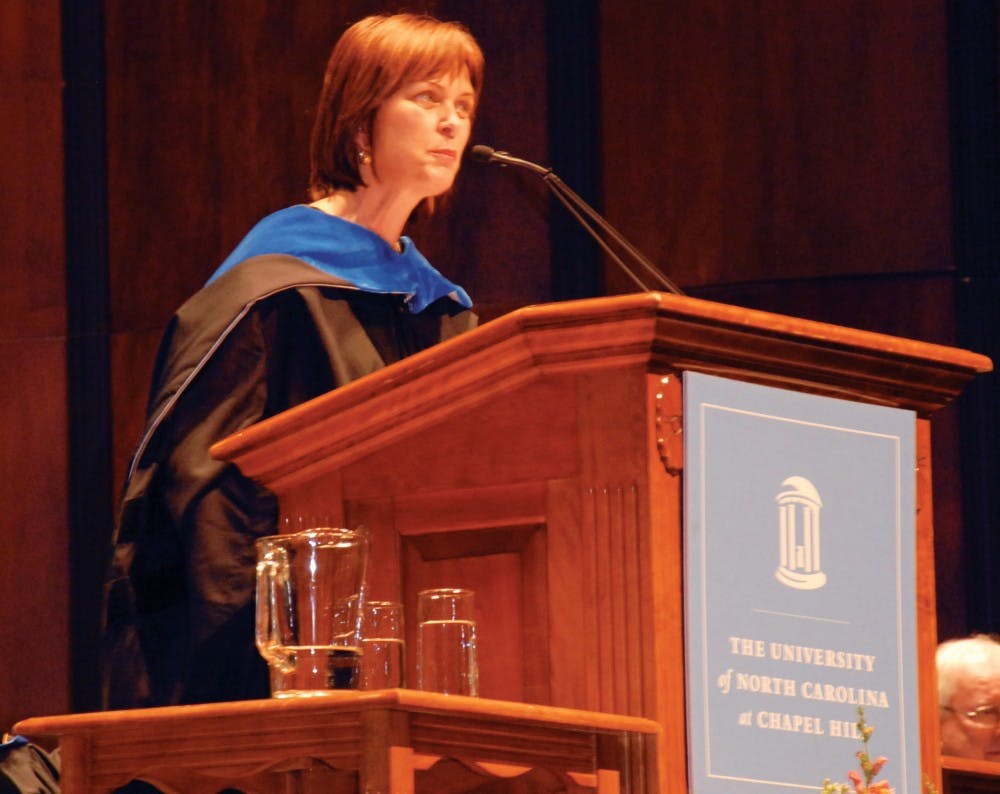For Chancellor Holden Thorp, the immediate future doesn’t look bright. He has to cut approximately $54 million from UNC’s budget, determine the future of Greek life at the University, rebuild a football team marred by an NCAA investigation and find funding for the delayed Carolina North development.
But on the school’s 217th birthday, the sun was shining. Thorp and UNC-system President Erskine Bowles were smiling. And administrators took the day to celebrate the University’s successes and recognize their challenges are difficult, but not unique in the span of UNC’s history.
“All of you who love this University know that every leader worth his salt is tested,” Bowles said. “And Holden Thorp is, and will be, tested in the future. You can take comfort in knowing that Holden Thorp has never failed any test. In fact, he has never even come close in making a ‘B.’ Holden Thorp always makes an ‘A.’”
This year, the state’s budget shortfall is expected to be between $3.2 and $3.5 billion, and UNC administrators project budget cuts as high as 10 percent.
While some administrators are considering significantly raising tuition next year and have voiced doubt regarding UNC’s ability to continue providing expansive, affordable education, the system’s leaders re-affirmed their faith in public higher education at Tuesday’s celebration.
“I’m proud to be here to celebrate this 217th University Day, but more importantly, to celebrate the enormous good the University does for the state and its students,” Bowles said.
Administrators focused on the themes of innovation and entrepreneurship as ways for UNC to move forward in addressing the needs of the state and the people of North Carolina, although there was no mention of how the current economy might affect those goals.
The University has raised more than $11 million for the $125 million campaign, “Innovate@Carolina: Important Ideas for a Better World,” a road map which was officially unveiled Tuesday.
The keynote speaker, Heather Munroe-Blum, principal of McGill University in Canada, addressed entrepreneurship in public higher education, which she said is in itself a form of innovation.
“This idea — the public university — was something of a radical innovation,” she said. “Because, for the first time on this continent, education, and its prime resource — information — were not defined as restricted commodities. The radical thinking here was that the public had an innate intelligence, and it would be of great benefit to the state if that intelligence could be unlocked and shared broadly.”




